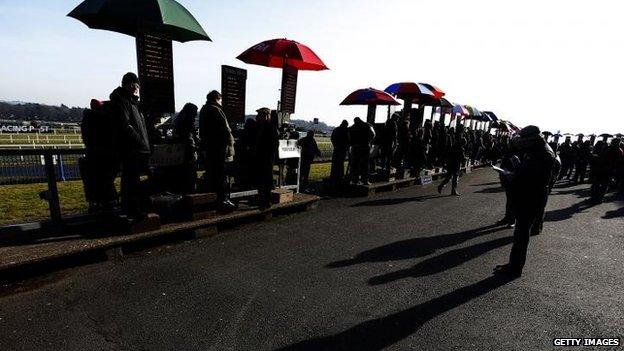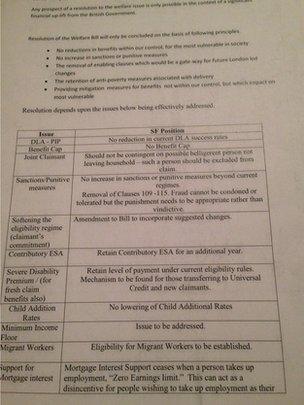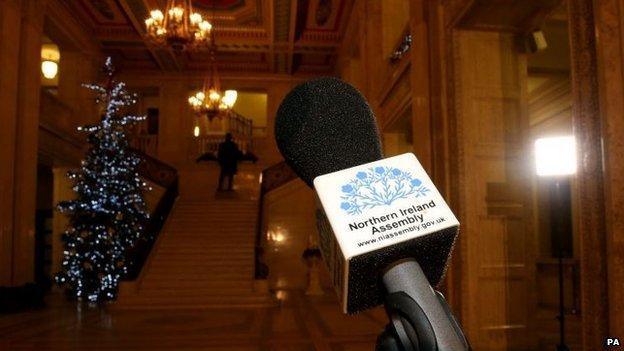Stormont welfare crisis: Risks of making judgement calls
- Published
- comments

After previous efforts at offering odds, my career as a tipster is on hold
I'm not a betting man, but inevitably in my line of work I am sometimes pressed to make judgement calls, some of which I come to regret.
So it was that on Good Morning Ulster during the marathon Stormont House talks, the presenter Conor Bradford backed me into a corner and demanded that I should call it "deal or no deal?"
I responded that Stormont House looked like a tired old nag, a 100-1 outsider.
Within days, the politicians emerged to proclaim a new dawn in devolution. Not for the first time I had to eat my words very publicly on air.
My judgement call had been wrong, but I hadn't pulled it out of thin air.

Sinn Féin's position paper set out clearly the party's belief that there should be no reduction in any of the benefits under the executive's control
At the time of the broadcast, the talks seemed at an especially low ebb and negotiators from other parties were telling me they regarded Sinn Féin's latest demands on welfare reform as completely impractical.
I didn't have just their hunches to go on, but also a Sinn Féin position paper which set out clearly the party's belief that there should be no reduction in any of the benefits under the executive's control.
So when the deal was announced, the ease with which the welfare logjam was broken seemed surprising.
We were briefed that many of the politicians' assumptions had turned out to be incorrect.
The new system of universal credit would cover circumstances that Sinn Féin had feared it wouldn't.
Some of the numbers had been double-counted, making the perceived gap between Sinn Féin and the rest appear wider than it turned out to be.
I scratched my head, made my on-air apologies and moved on.
Competing numbers
If the DUP and Sinn Féin were prepared to renew their marriage vows, who was I to object from the back of the church?
By this point, in common with many other commentators, I am drowning in the competing numbers surrounding the welfare stand-off and don't pretend to have the full picture.
But having been burned once, I am reluctant to accept the notion again that with an extra £200m or £300m thrown into the pot, all will be well.
Here's one thing that puzzles me.
The so-called welfare fines levied by the Treasury are meant to represent the difference between what Northern Ireland would have saved if it had adopted the new benefit system and its projected expenditure if it sticks with the existing old system.
Based on actual fines and Social Security Agency projected fines over the next five financial years, the executive should be paying a total of £1.325bn.

The deal was announced just before Christmas
Over the same period, the resources allocated to the Stormont Castle top-up benefit scheme amount to £466m.
I make that a gap of £859m, and that's without getting into the £705m estimate the Social Security Agency has given for the cost of setting up a bespoke Northern Ireland computer system.
If the parties do eventually cobble together a deal, no doubt some spin doctor will be able to baffle me with arithmetical calculations.
In the meantime, it might be Cheltenham week but I am continuing to put my short-lived career as a racing tipster on hold.